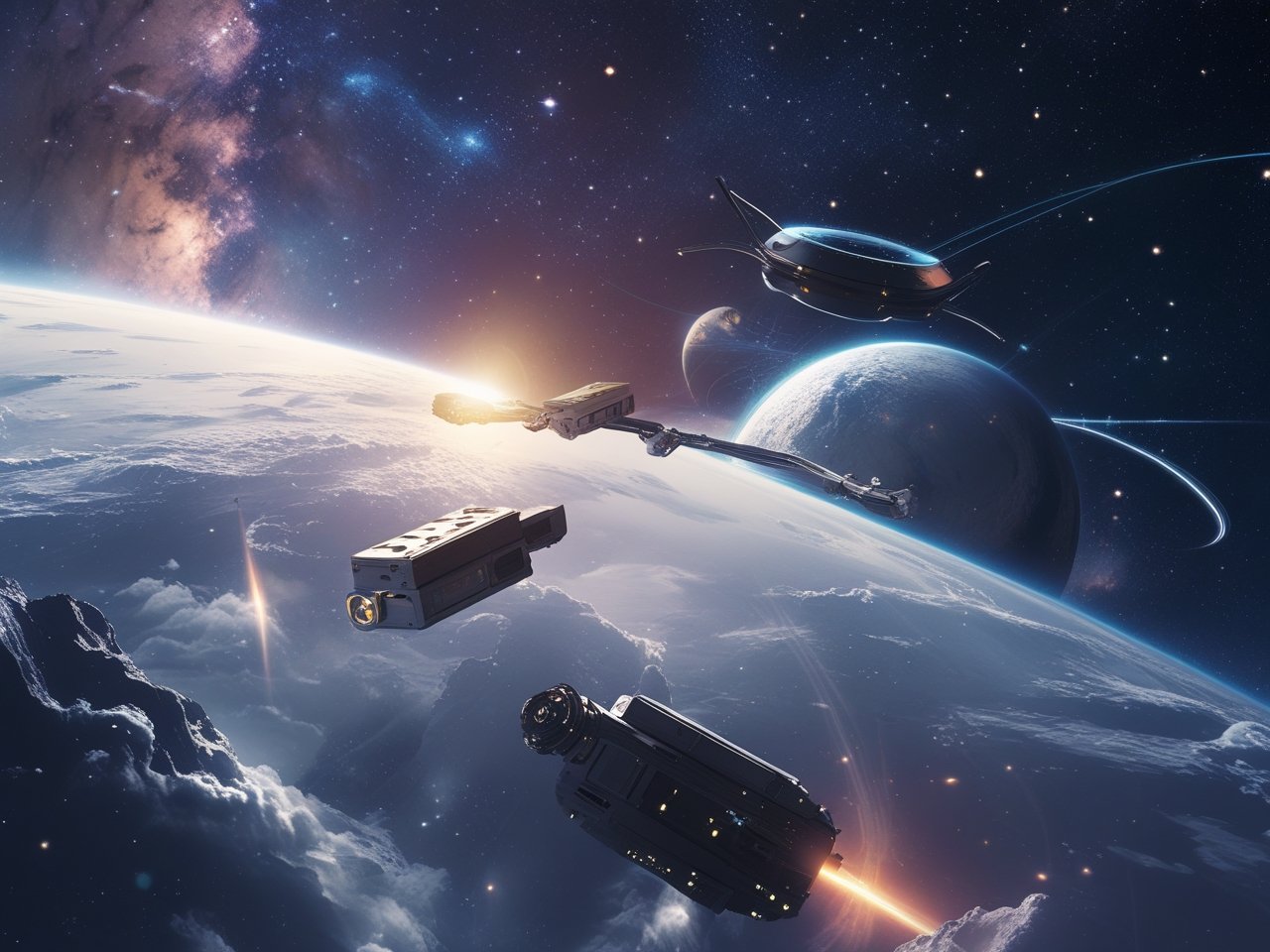The mysteries of the universe have involved humanity for hundreds of years, and space exploration represents our relentless quest to understand the cosmos. As we push similarly into the unknown, artificial intelligence has emerged as a sport-changer, revolutionizing how we explore, observe, and navigate space. From improving mission efficiency to uncovering celestial secrets and techniques, AI is reshaping the destiny of space exploration. In this article we are able to Discover how AI is revolutionizing space exploration by means of unveiling the unknown.
AI: The Astronaut’s Intelligent Ally
Modern area exploration needs precision, performance, and the potential to function in environments in which human presence is constrained or not possible. This is wherein AI shines, supplying talents that surpass traditional methods.
1. Autonomous Spacecraft Operations
Spacecraft ready with AI can carry out obligations autonomously, reducing reliance on Earth-based totally commands. This autonomy is vital for missions to remote planets, in which communication delays—as much as forty mins round journey for Mars—make actual-time manage impractical.
For example: NASA’s Mars rovers, such as Perseverance, use AI to navigate the Martian terrain. The Autonomous Navigation (AutoNav) device permits the rover to chart its path, warding off barriers and optimizing routes without steady human intervention. This capability speeds up exploration and maximizes scientific discoveries.
2. Data Processing and Analysis
Space missions generate large volumes of records—from photographs of distant galaxies to measurements of planetary atmospheres. Analyzing this records manually is time-consuming and prone to blunders. AI algorithms, especially the ones in gadget mastering, can method and examine information at extraordinary speeds.
For example: the European Space Agency (ESA) employs AI to analyze satellite tv for pc imagery for monitoring Earth’s environment. Similarly, AI aids in processing data from the Hubble Space Telescope and different observatories, identifying styles and anomalies that might in any other case move ignored.
Revolutionizing Planetary Science
AI’s ability to extract insights from complicated datasets is transforming planetary technology.
Exoplanet Discovery
AI has performed a pivotal role in coming across exoplanets—planets orbiting stars out of doors our sun device. The Kepler Space Telescope, which retired in 2018, gathered data on over one hundred fifty,000 stars. Sifting through this good sized dataset manually could had been a huge challenge, however AI stepped in to automate the process.
Google’s AI, the usage of neural networks, analyzed Kepler information and recognized extra exoplanets, together with Kepler-90i, a rocky planet in an 8-planet machine much like our very own. This marked a big leap forward in our search for liveable worlds.
Surface Analysis of Celestial Bodies
AI complements our capability to observe the surfaces of celestial bodies like the Moon, Mars, and asteroids. High-decision imagery captured by orbiters is analyzed by way of AI to perceive touchdown sites, locate mineral compositions, and determine geological functions.
For instance, Japan’s Hayabusa2 mission employed AI to navigate and analyze the asteroid Ryugu. The spacecraft’s AI-guided sampling ensured precise records series, imparting insights into the asteroid’s composition and history.
Challenges in AI-Driven Space Exploration
While AI has made fantastic strides in space exploration, challenges remain.
- Limited Computing Resources: Spacecraft have limited computing talents because of length, weight, and power limitations. Advanced AI algorithms require extensive processing energy, that’s hard to achieve onboard spacecraft. Engineers need to strike a stability among computational desires and hardware obstacles.
- Reliability and Risk: In the unforgiving environment of space, AI structures must perform perfectly. A malfunction in AI choice-making ought to jeopardize a whole project. Ensuring the reliability of AI in crucial operations, together with spacecraft navigation or existence-help control, stays a key issue.
- Ethical Considerations: As AI takes on extra duties in area exploration, ethical questions rise up. For instance, how do we ensure AI makes choices aligned with task goals with out accidental effects? Developing obvious, responsible AI structures is critical to cope with these concerns.
The Future of AI in Space Exploration
The capability for AI in area exploration is boundless. Here’s what the future would possibly keep:
1. AI-Powered Space Telescopes
Next-era telescopes prepared with AI may want to autonomously identify and look at celestial phenomena, consisting of supernovae or black holes, in real time. This might substantially accelerate the pace of astronomical discoveries.
2. AI and Human Spaceflight
Artificial Intelligence will play a crucial position in supporting astronauts on lengthy-period missions, together with those to Mars. AI assistants like NASA’s Astrobee robots are already being examined aboard the International Space Station (ISS) to assist astronauts with habitual responsibilities, decreasing cognitive load.
3. Interstellar Exploration
As we appearance past our solar device, AI can be critical for interstellar probes navigating uncharted territory. These probes will rely upon AI for self sufficient selection-making, records series, and conversation over sizeable distances.
A New Era of Discovery
AI is ushering in a brand new technology of space exploration, permitting us to tackle demanding situations that were as soon as insurmountable. By automating duties, reading tremendous datasets, and running autonomously, AI is unlocking the secrets and techniques of the universe at an unprecedented pace.
As humanity prepares to discover deeper into the cosmos, the collaboration between human ingenuity and artificial intelligence will be our guiding star. From robotic explorers to advanced telescopes, AI is remodeling the dream of exploring the final frontier into fact—one discovery at a time.







